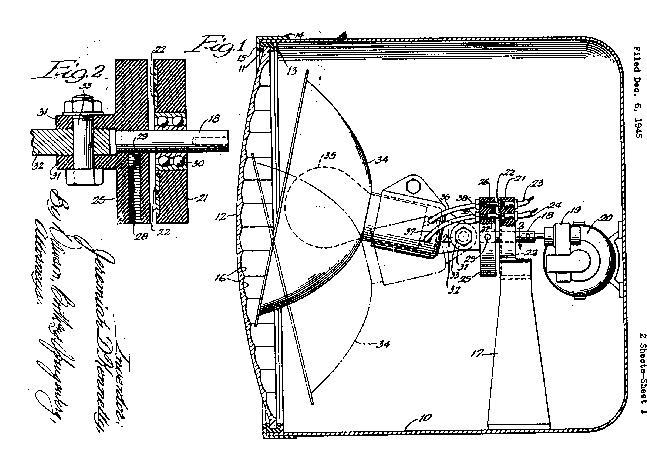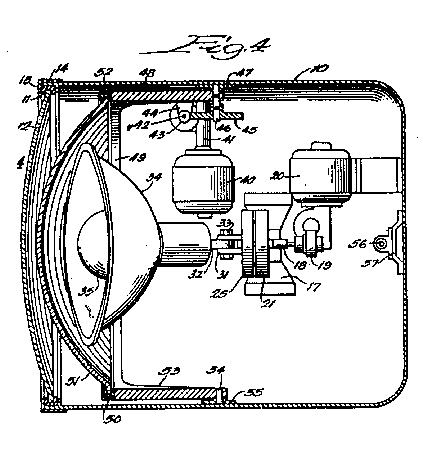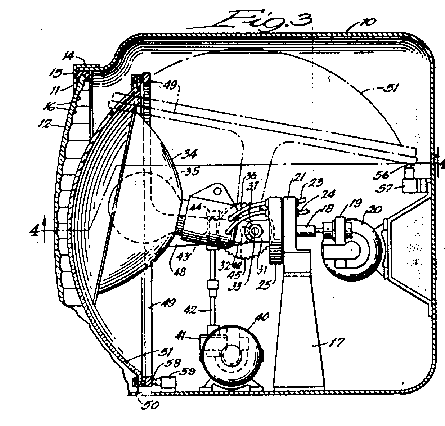This website has been archived from TrainWeb.org/gyra to TrainWeb.US/gyra.
This website has been archived from TrainWeb.org/gyra to TrainWeb.US/gyra.



Figure 4 is a plan or top view of this light. Figure 1 and Figure 3 are side views.
Lens 12 can be provided with arcuate bands 16 or prisms which will tend to bend the rays projected by the moving source of light - increasing the effect of the rays.
Standard 17 provides a bearing for shaft member 18.
Shaft 18 is driven by reduction gears 19 which are
turned by motor 20 which is secured to the wall of the casing 10.
Switch plate 21 provides switch bands 22 with which electrical
connections are made.
Shaft 18 carries a disk 25 which contains plungers 26 and
27 which are spring loaded and push against switch plate 22.
Recess 28 is provided with a set screw 29 to lock disk 25
firmly to the shaft 18.
Support lever 32 which is coupled to shaft 18 carries clamp bolt 33.
A reflector 34 is attached to this lever.
A light bulb 35 is mounted within this reflector.
The light moves in a circular pattern. This rotation coupled with the prismatic lens results
in a constantly changing group of projected rays.
Motor 40 is supported at bottom wall of casing 10. This motor drives, through reduction
gears 41, a vertically supported shaft 42.
A worm 43 at the upper end of this shaft meshes with worm gear 45
which is attached to a shaft 46. This shaft is attached to an arm 48
with an integral ring member 49 which holds a colored
lens 51.
Motor 40 enables the colored lens to be rotated in front of the lamp or retracted.
Limit switches stop the motor when the colored lens assembly reaches it's desired setting.
Electrical contact between lamp 35 and plungers 26 and 27 are made
through the plunger springs 38 and 39.